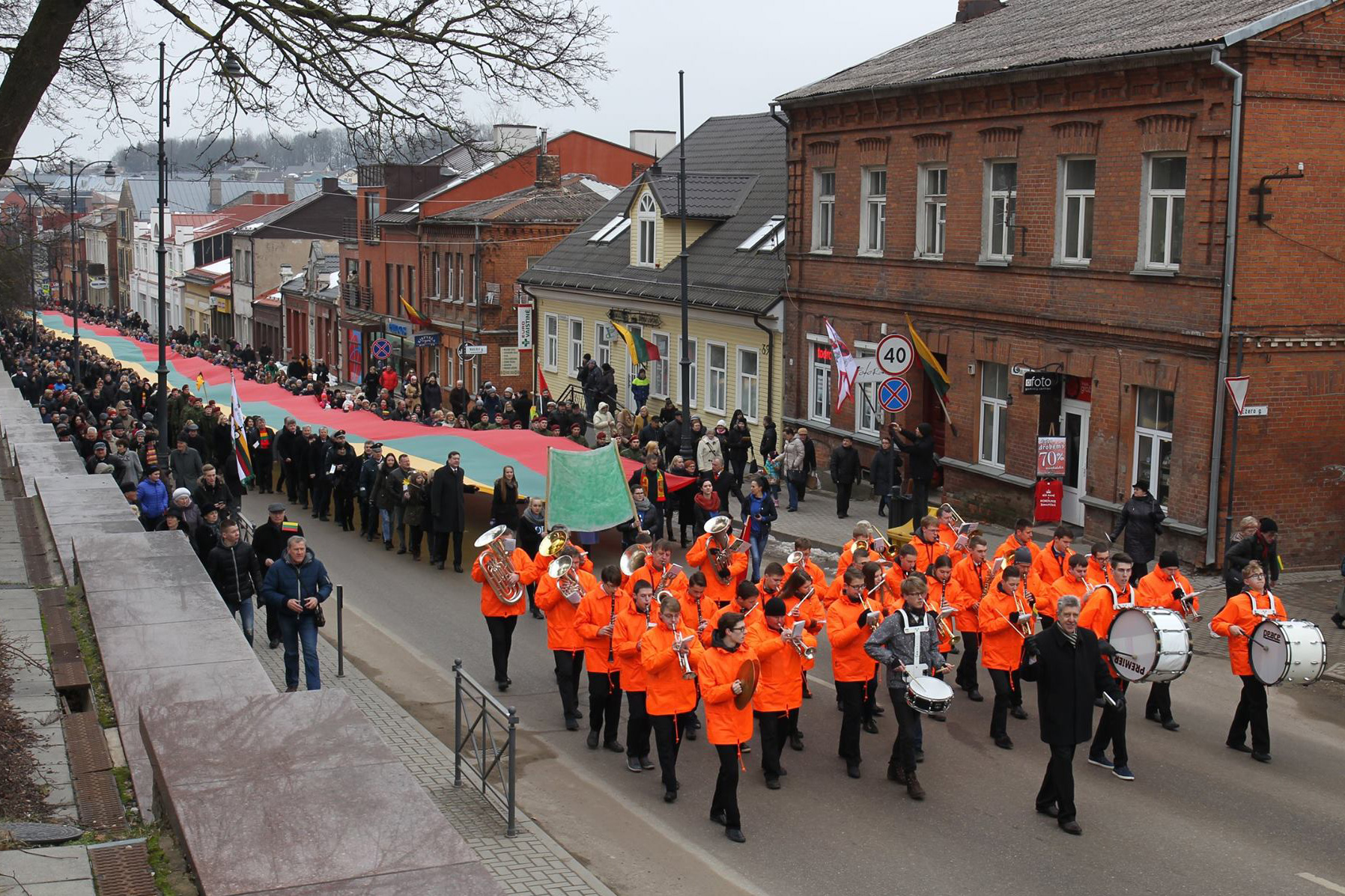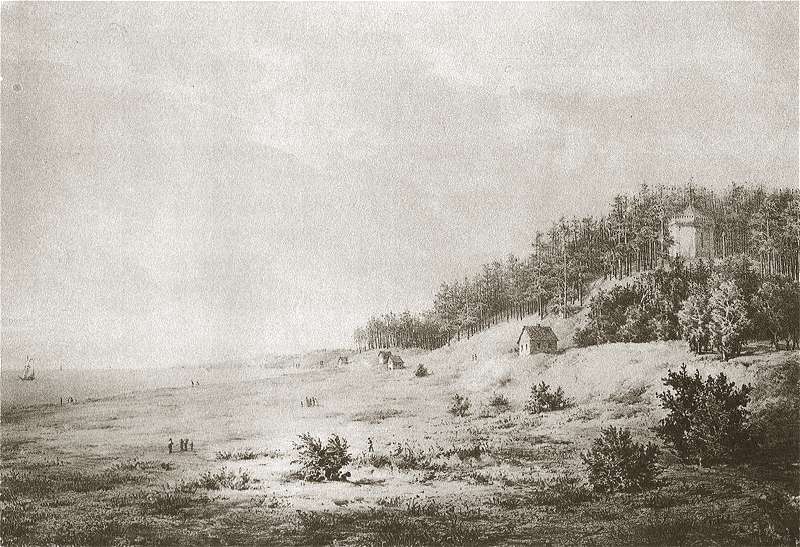|
Vladas Žulkus
Vladas Žulkus (born April 16, 1945, in Telšiai) is a Lithuanian archaeologist. In October 2002 he was elected Rector (academia), rector of Klaipėda University. Biography Žulkus started his career as an archaeologist in the Institute for Monument Preservation in Klaipėda. From 1969 till 1990 he was fellowship of the institute (from 1979 in position of head of archaeologists group) and investigated mainly the old town and the castle ruin in Klaipėda. In 1988, after studying in Institute of Archaeology of the USSR Academy of Sciences, he defended his doctoral thesis on Klaipėda and the region in the 11th - 17th centuries. In 1990 Žulkus became a director of the History Museum of Lithuania Minor. Two years later together with Alvydas Nikžentaitis he founded Centre of History of Western Lithuania and Prussia (from 2003 - BRIAI, Institute of Baltic Sea Region History and Archaeology) and Historical Department at Klaipėda University. In 1993-1997 and in 2001-2002 Žulkus was d ... [...More Info...] [...Related Items...] OR: [Wikipedia] [Google] [Baidu] |
Telšiai
Telšiai (; Samogitian language, Samogitian: ''Telšē'') is a city in Lithuania with about 21,499 inhabitants. It is the capital of Telšiai County and Samogitia region, and it is located on the shores of Lake Mastis. Telšiai is one of the oldest cities in Lithuania, probably dating earlier than the 14th century. Between the 15th and 20th centuries, Telšiai became a district capital. Until 1795, Telšiai County formed the Duchy of Samogitia within the Grand Duchy of Lithuania. Between 1795 and 1802 it was included in the Vilnius Governorate. In 1873, Telšiai was transferred to the Kovno Governorate. Names The name Telšiai is a variant of the same Lithuanian language root (''-telš-'', ''-tilž-'') as Tilžė or Talsi with the meaning connected to water. The name Telšiai or Telšē in Samogitian dialect of Lithuanian is derived from a verb ''telkšoti'' (literally, ''to be flooded with water'', ''to splash'', etc.). It is a cognate to the Greek thalassa - ''sea'', compare ... [...More Info...] [...Related Items...] OR: [Wikipedia] [Google] [Baidu] |
Republic Of Lithuania
Lithuania, officially the Republic of Lithuania, is a country in the Baltic region of Europe. It is one of three Baltic states and lies on the eastern shore of the Baltic Sea, bordered by Latvia to the north, Belarus to the east and south, Poland to the south, and the Russian exclave, semi-exclave of Kaliningrad Oblast to the southwest, with a Maritime boundary, maritime border with Sweden to the west. Lithuania covers an area of , with a population of 2.89 million. Its capital and largest city is Vilnius; other major cities include Kaunas, Klaipėda, Šiauliai and Panevėžys. Lithuanians who are the titular nation and form the majority of the country's population, belong to the ethnolinguistic group of Balts and speak Lithuanian language, Lithuanian. For millennia, the southeastern shores of the Baltic Sea were inhabited by various Balts, Baltic tribes. In the 1230s, Lithuanian lands were united for the first time by Mindaugas, who formed the Kingdom of Lithuania on 6 July ... [...More Info...] [...Related Items...] OR: [Wikipedia] [Google] [Baidu] |
People From Telšiai
The term "the people" refers to the public or common mass of people of a polity. As such it is a concept of human rights law, international law as well as constitutional law, particularly used for claims of popular sovereignty. In contrast, a people is any plurality of persons considered as a whole. Used in politics and law, the term "a people" refers to the collective or community of an ethnic group or nation. Concepts Legal Chapter One, Article One of the Charter of the United Nations states that "peoples" have the right to self-determination. Though the mere status as peoples and the right to self-determination, as for example in the case of Indigenous peoples (''peoples'', as in all groups of indigenous people, not merely all indigenous persons as in ''indigenous people''), does not automatically provide for independent sovereignty and therefore secession. Indeed, judge Ivor Jennings identified the inherent problems in the right of "peoples" to self-determination, as i ... [...More Info...] [...Related Items...] OR: [Wikipedia] [Google] [Baidu] |
Lithuanian Archaeologists
Lithuanian may refer to: * Something of, from, or related to Lithuania, a country in the Baltic region in northern Europe ** Lithuanian language ** Lithuanians, a Baltic ethnic group, native to Lithuania and the immediate geographical region ** Lithuanian cuisine ** Lithuanian culture Other uses * Lithuanian Jews as often called "Lithuanians" (''Lita'im'' or ''Litvaks'') by other Jews, sometimes used to mean Mitnagdim * Grand Duchy of Lithuania * Polish–Lithuanian Commonwealth See also * List of Lithuanians This is a list of Lithuanians, both people of Lithuanian descent and people with the birthplace or citizenship of Lithuania. In a case when a person was born in the territory of former Grand Duchy of Lithuania and not in the territory of moder ... {{disambig Language and nationality disambiguation pages ... [...More Info...] [...Related Items...] OR: [Wikipedia] [Google] [Baidu] |
Living People
Purpose: Because living persons may suffer personal harm from inappropriate information, we should watch their articles carefully. By adding an article to this category, it marks them with a notice about sources whenever someone tries to edit them, to remind them of WP:BLP (biographies of living persons) policy that these articles must maintain a neutral point of view, maintain factual accuracy, and be properly sourced. Recent changes to these articles are listed on Special:RecentChangesLinked/Living people. Organization: This category should not be sub-categorized. Entries are generally sorted by family name In many societies, a surname, family name, or last name is the mostly hereditary portion of one's personal name that indicates one's family. It is typically combined with a given name to form the full name of a person, although several give .... Maintenance: Individuals of advanced age (over 90), for whom there has been no new documentation in the last ten ... [...More Info...] [...Related Items...] OR: [Wikipedia] [Google] [Baidu] |
1945 Births
1945 marked the end of World War II, the fall of Nazi Germany, and the Empire of Japan. It is also the year concentration camps were liberated and the only year in which atomic weapons have been used in combat. Events World War II will be abbreviated as “WWII” January * January 1 – WWII: ** Germany begins Operation Bodenplatte, an attempt by the ''Luftwaffe'' to cripple Allied air forces in the Low Countries. ** Chenogne massacre: German prisoners are allegedly killed by American forces near the village of Chenogne, Belgium. * January 6 – WWII: A German offensive recaptures Esztergom, Hungary from the Soviets. * January 9 – WWII: American and Australian troops land at Lingayen Gulf on western coast of the largest Philippine island of Luzon, occupied by Japan since 1942. * January 12 – WWII: The Soviet Union begins the Vistula–Oder Offensive in Eastern Europe, against the German Army. * January 13 – WWII: The Soviet Union begins the East Prussia ... [...More Info...] [...Related Items...] OR: [Wikipedia] [Google] [Baidu] |
Vytautas Magnus University
Vytautas Magnus University (VMU) (, VDU) is a public university in Kaunas, Lithuania. The university was founded in 1922 during the interwar period as an alternate national university. Initially it was known as the University of Lithuania, but in 1930 the university was renamed to ''Vytautas Magnus University'', commemorating the 500th anniversary of the death of the Lithuanian ruler Vytautas the Great, who is known for the nation's greatest historical expansion in the 15th century. It is one of the leading universities of Lithuania, and has about 8,800 students, including Master's students and Ph.D. candidates There are a little over 1000 employees, including approximately 90 professors. History Establishment of University In 1918 with the establishment of the independent Republic of Lithuania, the State Council decided to reestablish Vilnius University. Since Vilnius was later under Polish administration and the Lithuanian government had to be transferred to Kauna ... [...More Info...] [...Related Items...] OR: [Wikipedia] [Google] [Baidu] |
Palanga
Palanga (; ; ) is a resort town, resort city in western Lithuania, on the shore of the Baltic Sea. Palanga is the busiest and the largest summer resort in Lithuania and has sand, sandy beaches (18 km, 11 miles long and up to 300 metres, 1000 ft wide) and sand dunes. Officially Palanga has the status of a city municipality and includes Šventoji, Lithuania, Šventoji, Nemirseta, Būtingė, Palanga International Airport and other settlements, which are considered as part of the city of Palanga. Etymology The name of the town is likely of Curonian language, Curonian origin, as proposed by the linguist Kazimieras Būga. The primary argument is the suffix "''-ng-''", which is particularly distinctive of Curonian toponyms (Gandinga, Ablinga, Būtingė, etc.). The root ''pal-'', furthermore, is also associated with the landscape of lowlands or marshes. This is exemplified by the Lithuanian ''palios'', which translates to "large marsh", and the Latvian language, Latvian ''pa ... [...More Info...] [...Related Items...] OR: [Wikipedia] [Google] [Baidu] |
Archaeology
Archaeology or archeology is the study of human activity through the recovery and analysis of material culture. The archaeological record consists of Artifact (archaeology), artifacts, architecture, biofact (archaeology), biofacts or ecofacts, archaeological site, sites, and cultural landscapes. Archaeology can be considered both a social science and a branch of the humanities. It is usually considered an independent academic discipline, but may also be classified as part of anthropology (in North America – the four-field approach), history or geography. The discipline involves Survey (archaeology), surveying, Archaeological excavation, excavation, and eventually Post excavation, analysis of data collected, to learn more about the past. In broad scope, archaeology relies on cross-disciplinary research. Archaeologists study human prehistory and history, from the development of the first stone tools at Lomekwi in East Africa 3.3 million years ago up until recent decades. A ... [...More Info...] [...Related Items...] OR: [Wikipedia] [Google] [Baidu] |
History
History is the systematic study of the past, focusing primarily on the Human history, human past. As an academic discipline, it analyses and interprets evidence to construct narratives about what happened and explain why it happened. Some theorists categorize history as a social science, while others see it as part of the humanities or consider it a hybrid discipline. Similar debates surround the purpose of history—for example, whether its main aim is theoretical, to uncover the truth, or practical, to learn lessons from the past. In a more general sense, the term ''history'' refers not to an academic field but to the past itself, times in the past, or to individual texts about the past. Historical research relies on Primary source, primary and secondary sources to reconstruct past events and validate interpretations. Source criticism is used to evaluate these sources, assessing their authenticity, content, and reliability. Historians strive to integrate the perspectives o ... [...More Info...] [...Related Items...] OR: [Wikipedia] [Google] [Baidu] |





